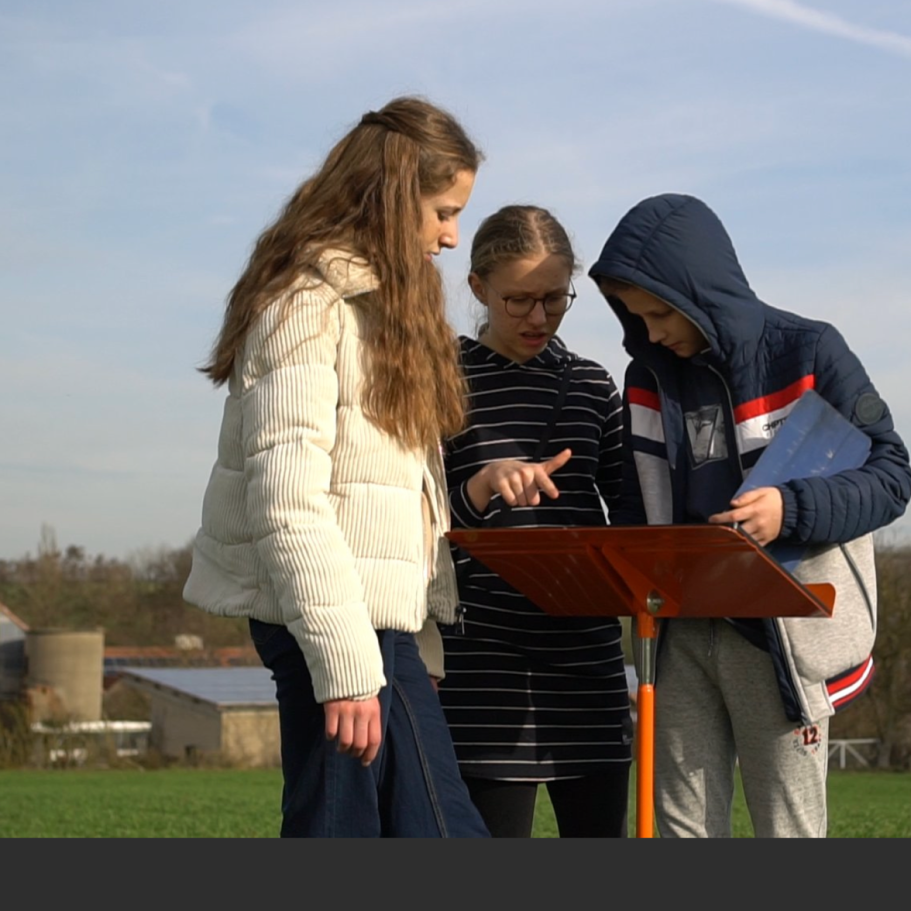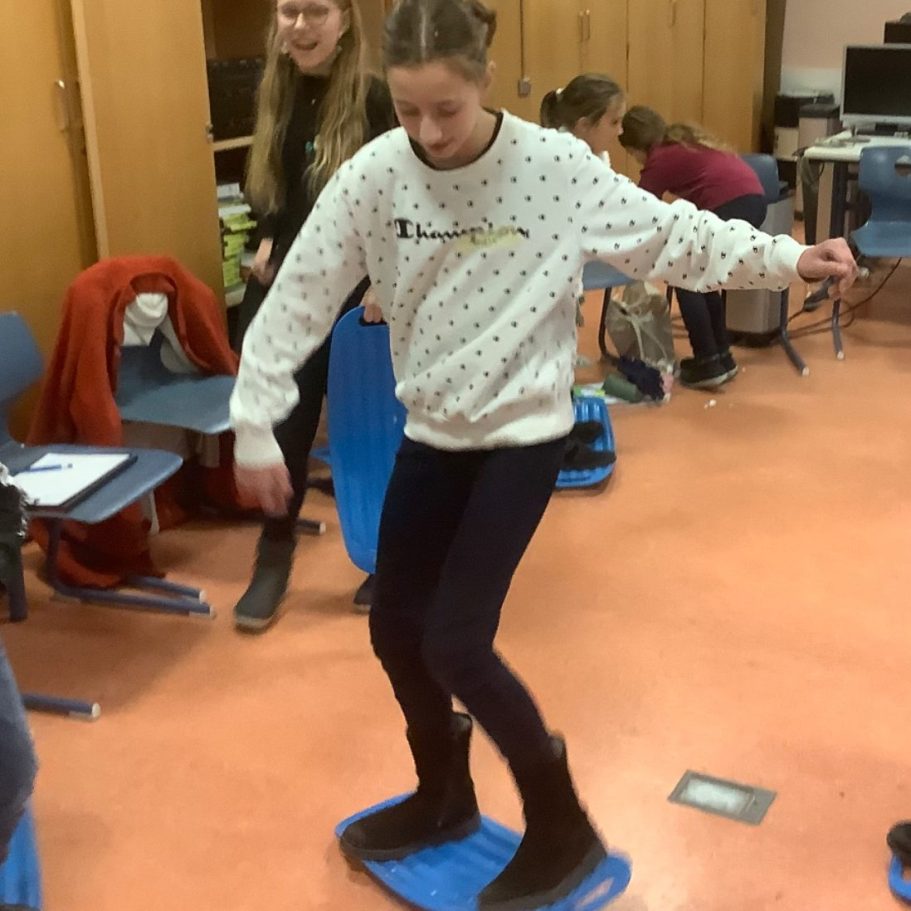Create the Future!

FutureLabs changing World and School



Our
FutureLab-Concept

Lab of sustainable future
Lab of Sustainable learning
In the FutureLab, the class works on their future, on our future, for one school day every week. They learn to organise independently, invent, understand complex things, become experts in their subject area.
There they cooperate with extracurricular partners and create sustainable innovations - together with their African partner class.
Along the way, they train the basics of maths, German and English independently and in a brain-friendly way - outdoors and indoors, with movement and in cooperation
FutureLab aktuell
.……..……Mo, 22. April 2024.………
18.30-20.30 Uhr - Warema-Renkhoff-Aula Technische Hochschule Würzburg-Schweinfurt
Ignaz-Schön-Str. 11, Schweinfurt
Future-DEBATE
‚Sustainable land use in times of anger&frustration‘
Participate?!
Become a part of our FutureLab-Community!
You can participate in modules or create a full FutureLab
We support with:
- Consulting
- Coaching
- Support-Material print and online
- Network of FutureLab-Community
- Workshops online
Take contact to us!
Wie können WIR dabei sein?


The FutureLab-Concept in Science World
Together with Prof. Dr. Avid Bhowmik from Centre for Research on Sustainable Societal Transformation of University of Karlstad/Schweden and Mark McCaffrey we offer this paper to scientific discussion. We argue that participation of young people within their school life in regional transformation processes can create social tipping points in mitigating earth system crisises.

FutureLab-Classes in Bavaria and Ghana

Common Projects with Baobab
We project floating photovoltaics on the storage sea at Baobab farm and a sustainably built farmer house out of claim and bamboo together.

Our Bavarian FutureLab-Projects
The Schweinfurt FutureLab classes project a combined AgroFoerstry and AgriPhotovoltaics field, a tree nursery for the Schweinfurt forests, a TinyForest in the City and green curtains to cool down school‘s and City‘s spaces.
Projects of the FutureLabs in Ghana
Agroforestry, humus accumulation and closed loop farming are the topics of the pilot fields of FutureLab class at Baobab school.
ImageFilm & German TV-news 'tagesthemen'
The pilot classes in Bavaria 2022/23 produced an Imagefilm about FutureLab‘s perspectives.
Jonas Dohn, a young filmer, shows FutureLab‘s ideas and international Scientists argue towards the FutureLab concept.
The FutureLab-Concept
... why FutureLab?
Because young people do need that:
physical activity & nature
digital control & abstinence
self efficacy & participation
drive & stamina
efficency in learning & thinking
empathy & respect




Modules in the FutureLab-Programm
Module 1
PROJECT
Lab of Future
Module 2
TRAINING
Lab of Learning
Module 3
MINDSET
Lab of Thinking

tackling
We should not only understand the dangers for our future: In the FutureLab project, we are allowed to tackle them ourselves with experts - in the midst of our everyday school life.
In the FutureLab, we learn to tackle, plan, cooperate and organise.
And we do this together with students, with partner labs in Africa and Europe, with experts from all over the world.

brain-friendly
Everyday school life requires new ideas and effective, brain-friendly ways of memorising and understanding. To make learning stimulating and effective, students in the FutureLab invent training methods for maths, German or English - together with their teachers, they become experts for their brains and designers of their learning processes.
The workshops and materials in the Training module aim to make learning smart, motivating and a journey of discovery for pupils and teachers.

sustainable
To give our world a future, people need to understand its complexity, be able to find creative solutions and have the strength to implement them.
The FutureLabs provide targeted training in complex thinking, creativity and entrepreneurship - under scientific standards and with active freedom of design on the part of the students.lobal learning and global understanding are major goals for the future. They can only really be achieved through active collaboration.
FutureLabs in Europe work together with FutureLabs in Africa and their project partners. In this way, they understand the project fields even better in comparison, learn from each other and gain a global awareness.
How to work in FutureLab



FutureLabs and partners
A FutureLab-year and day
Lab of learning
FutureLabs work together with one or more partners in their region - these can be farmers, transport authorities or architects.
They learn the basics of transformation topics from them, create innovations with them and implement them where possible.
These can be methods of sustainable agriculture, regional mobility concepts or constructions in clay construction.
Collaboration with the 'real life' of the region will also strengthen the region in the long term.
In the first few months, the young people will try out planning techniques in working groups and become experts in fundamental sustainability topics.
Soon they will be looking for new. They will work in small groups on exciting sub-topics, which they will familiarise themselves with together with their African partners.
Now they can work with their extracurricular partners - in parallel with the African partner labs - to try out and implement concrete innovations. Hurdles that life will present are there to be understood and - of course - overcome together!
On each FutureLab day - between 2 and 5 school hours - they plan and work in working groups.
FutureLabs do not take teaching time away from the school, they provide key learning experiences: Complex understanding, creative thinking, planning, collaboration and hands-on work.
But curricular content is also promoted in a brain-friendly way: Through contact with the African partners, English skills are strengthened, mathematical understanding and physical relationships are almost imposed.
Brain-friendly basic training in maths, German and English as well as learning techniques are a central part of the modules on offer and, of course, of every FutureLab day - independently and actively!
We support you!

"The PISA study shows how difficult it is for current pupils to extrapolate from what they know and to creatively transfer their knowledge to new contexts. But this is exactly what matters.
In the future, it will be about linking the artificial intelligence of computers with the cognitive, social and emotional abilities and values of people.
This can be tested, developed and implemented in FutureLabs ... ... for a better world ... for a better school."
Prof.Dr. Andreas Schleicher
Director OECD-Education

"Climate change has taken on such a threatening dynamic that we absolutely need hopeful projects like FutureLabs to create 'positive tipping points' for the preservation of our livelihoods.
Young people can indeed trigger decisive 'positive tipping points' here if they are allowed to have the constant experience of actively participating in the transformation. Through 'contagion' to their parents, families and project partners, they can exert a great deal of influence on our world, on their world."
Prof.Dr. Timothy Lenton
Director GlobalSystemsInstitute

"It can't be right that schools are still set up the way they were almost a hundred years ago. Pupils learn better in an environment that appeals to them and not on hard chairs and in frontal teaching. Just as movement and a creative free space increase learning performance immensely.
The FutureLabs setting is ideally suited to offering a mixture of team lessons, group work, independent work by pupils, project and research work and extracurricular work. Here, experimentation, production, innovation and creativity are dovetailed with teaching."
Prof.Dr. Klaus Hurrelmann
Hertie-School of Governance
Wir benötigen Ihre Zustimmung zum Laden der Übersetzungen
Wir nutzen einen Drittanbieter-Service, um den Inhalt der Website zu übersetzen, der möglicherweise Daten über Ihre Aktivitäten sammelt. Bitte überprüfen Sie die Details in der Datenschutzerklärung und akzeptieren Sie den Dienst, um die Übersetzungen zu sehen.



